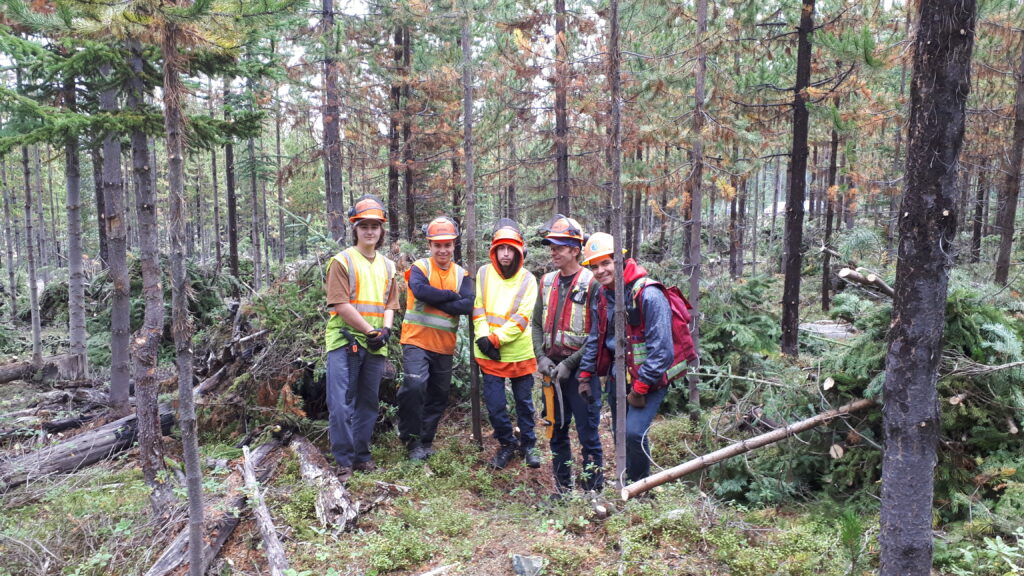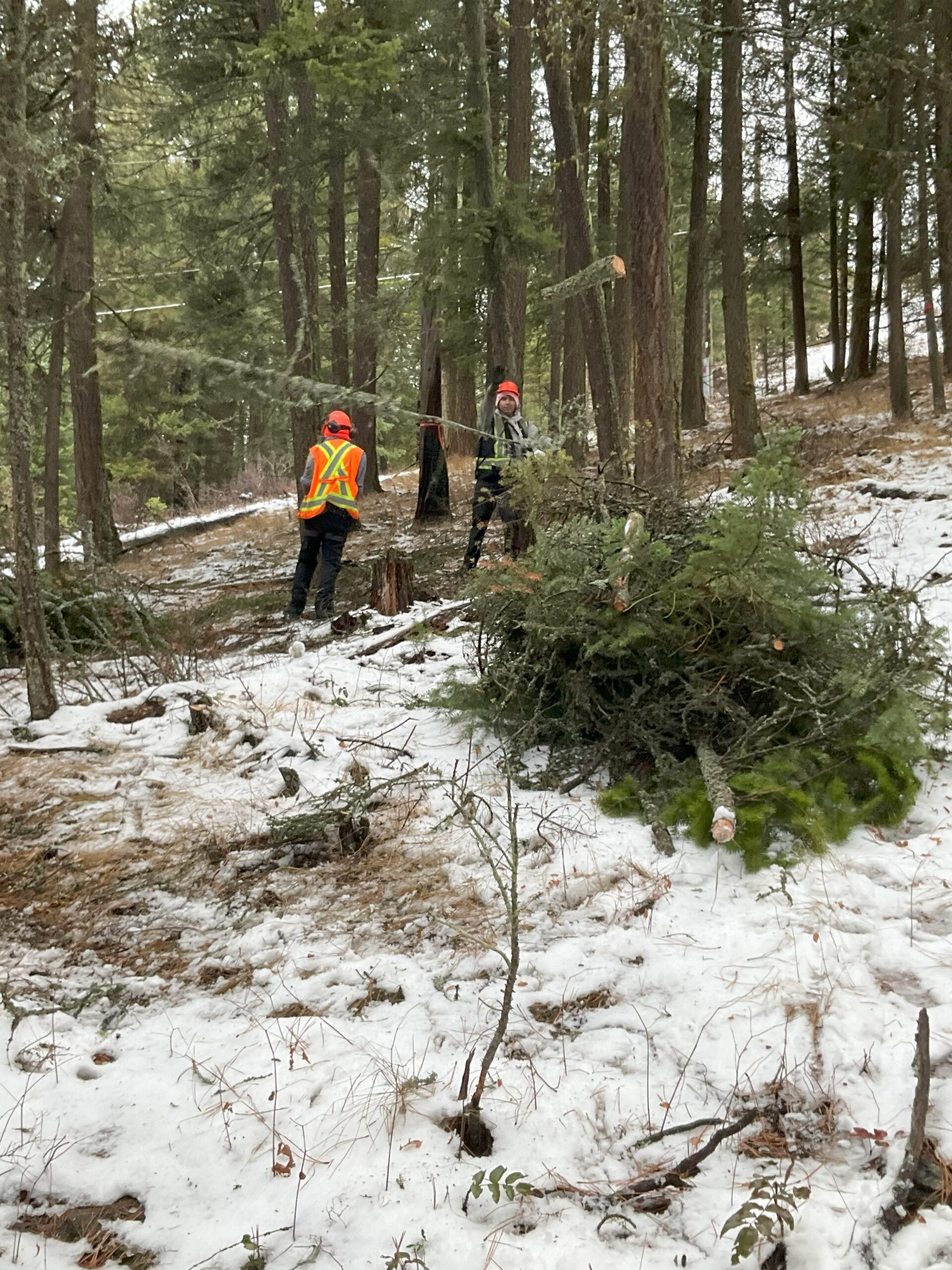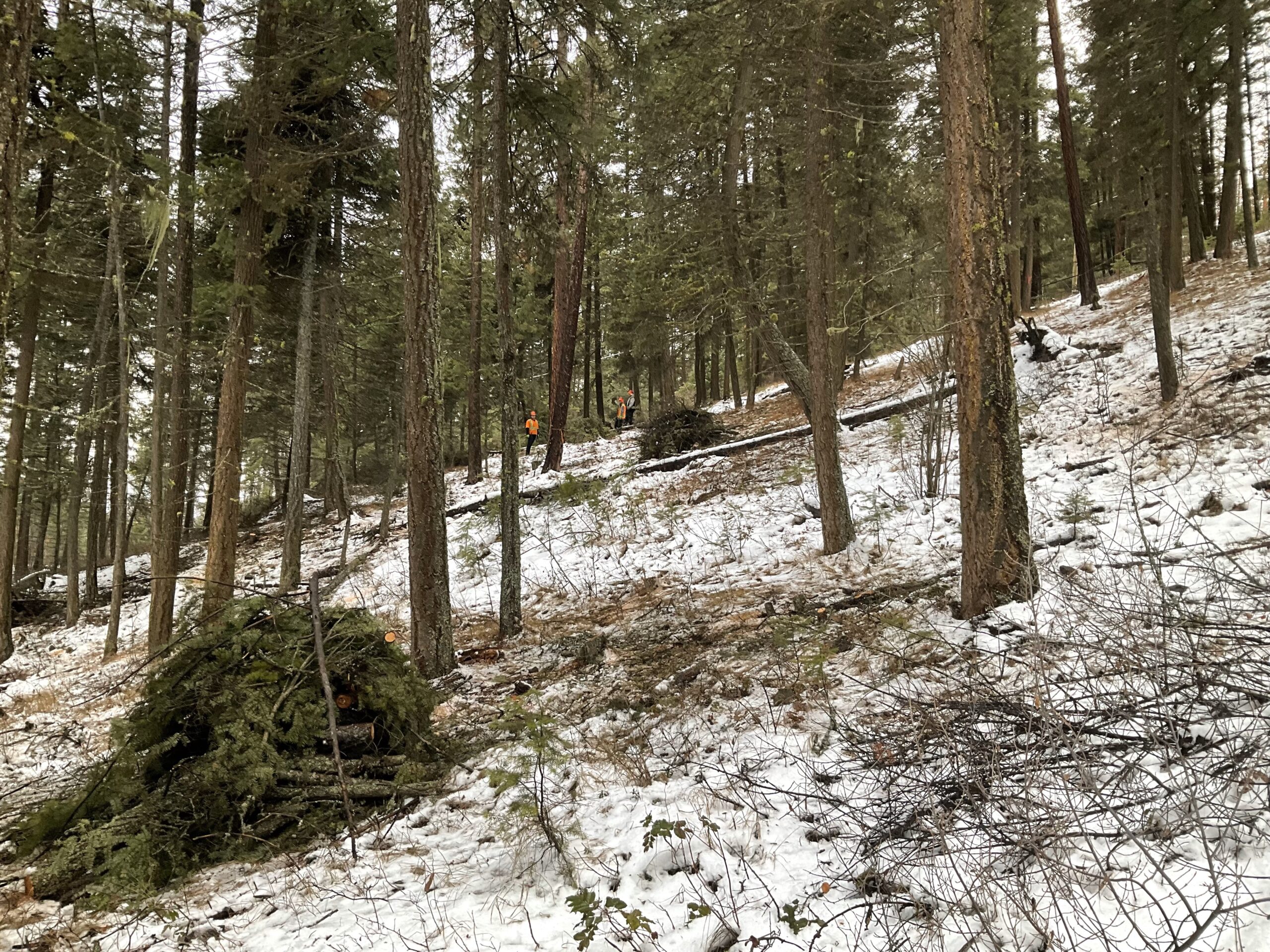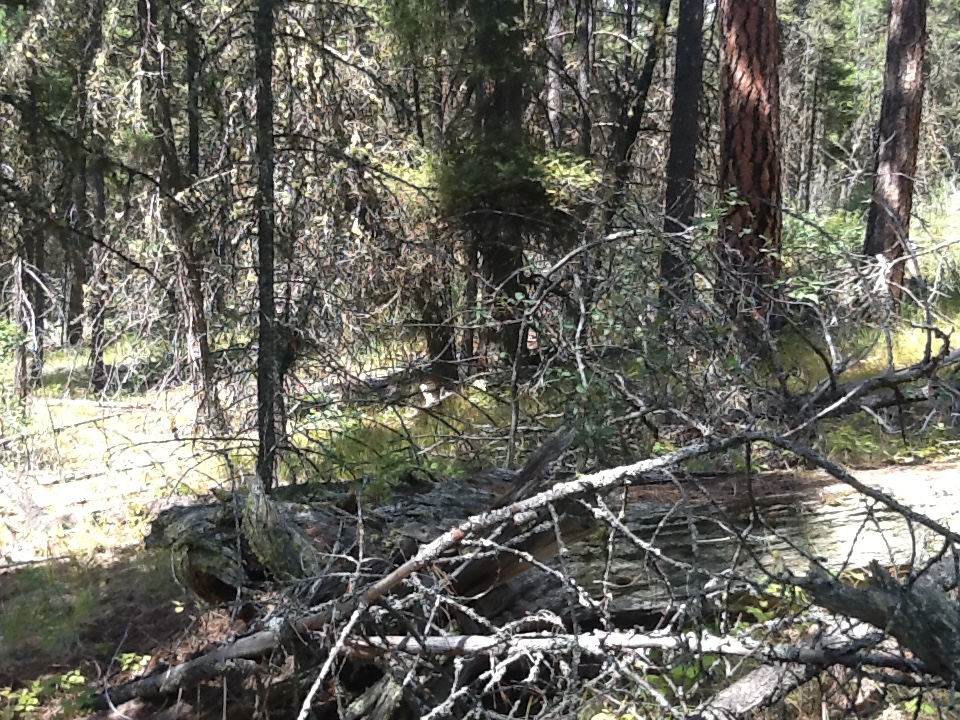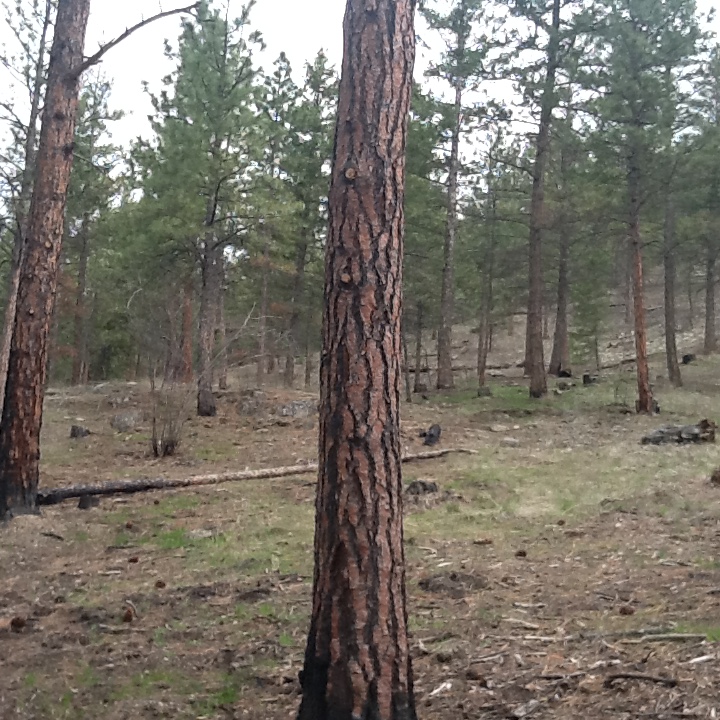West Kelowna, B.C. – Given the increasing number and severity of wildfires around the Interior of British Columbia over the last couple of years,Ntityix Resources LP (Ntityix), fully owned by Westbank First Nation (WFN), has been busy working to proactively reduce wildfire risk in the West Kelowna area. With funding support from the Forest Enhancement Society of BC (FESBC), Ntityix has successfully undertaken various initiatives around the community, specific to this wildfire mitigation work. The work itself contributes to a long-term mitigation strategy being undertaken to enhance the fuel modification zone, which will help slow down and, ideally, prevent the spread of wildfires in the area.
“The continued revitalization of cultural and prescribed fire helps to create healthy, safe and resilient forests, and I applaud Ntityix and the Westbank First Nation for continuing to take on wildfire risk reduction projects year after year, including working with the Province last year on prescribed burns,” said Bruce Ralston, Minister of Forests. “With support from the Forest Enhancement Society of BC, Ntityix’s fire prevention initiatives are better protecting the homes, businesses, and communities of West Kelowna, all while creating good, local job opportunities.”
The funding has helped Ntityix complete wildfire risk reduction projects, treating around 300 hectares around the communities of West Kelowna and Peachland in the Okanagan Region over the past ten or so years. This work has far-reaching impacts on not just reducing the risk of wildfire to these communities but by way of employment opportunities, building capacity within Ntityix with both fire mitigation and suppression activities, and developing confidence to re-introduce fire to the ecosystem through prescribed burns.
“Ntityix Resources LP and the Westbank First Nation believe the residents within the communities of West Kelowna and Peachland are supremely grateful for the funding provided by the Forest Enhancement Society of BC to carry out this work in the past and now into the future,” expressed Jordan Coble, Councillor with WFN and President of Ntityix.
Some of the wildfire risk reduction projects have included various approaches incorporating hand treatments, especially in delicate areas near residential backyards, as well as selective harvesting practices, which involve forest workers removing smaller trees while preserving larger ones.
“FESBC appreciates the leadership shown by Ntityix and the Westbank First Nation in reducing the wildfire risk to the residents located in and near West Kelowna and Peachland,” said Gord Pratt, senior manager with FESBC. “We are glad our funding can assist Ntityix in completing this important work in collaboration with all the other FireSmart activities being done by these communities.”
Last year, with the help of BC Wildfire Services (BCWS), Ntityix conducted their first cultural prescribed burn in an area just east of Kelowna. The burn was focused on grasslands and some open forests that had not had a fire go through the area in several decades. The prescribed burn helped to reinvigorate the grassland area and reduce the amount of surface fuels, or excess wood and debris, in the open forest area.
“In Fall 2024, with the help of BC Wildfire Service, we are planning a post-harvest controlled burn on areas where we have recently completed some harvesting work,” explained Dave Gill, RPF and general manager of forestry at Ntityix. “This will be a more ‘surgical’ burn versus the broadcast, or more widespread, burning of the past. This work will reduce surface fuels in areas that are within 5 kilometres of the community.”
Ntityix has also started to conduct fuel mitigation at the landscape level by identifying fuel management corridors across the landscape within WFN forest tenures to conduct fuel modification treatments.
“West Kelowna Fire Rescue, the City of West Kelowna, and Westbank First Nation are grateful for the ongoing funding provided by the Forest Enhancement Society of BC. I look forward to continuing to be involved and offer the ongoing support of our Fire Rescue team to participate in future projects,” added West Kelowna Fire Chief, Jason Brolund.
This proactive mitigation work provides local contractors and WFN members employment opportunities within the forest industry to help with good forest management. Ntityix has been able to build a permanent work crew based out of West Kelowna who work year-round on fuel mitigation, pre-commercial thinning, pruning, and wildfire suppression projects.
“Our forestry crew consists of permanent positions with full benefits, vacation time, and personal days. They have career goals, undergo cross-training with other aspects of our business, and some are considering furthering their education in forestry or taking on new roles within our company,” said Gill. “The funding also enables us to recruit Westbank First Nation community members who may be curious about entering a career in forestry, exposing them to other aspects of our work, and providing them with a full-time income as they start their career.”
Last summer, the MacDougall Creek wildfire tested the effectiveness of some of the wildfire risk reduction work undertaken by Ntityix in 2015. The extensive 13,500-hectare wildfire, with 8,000 hectares falling within WFN’s Community Forest, underscored the invaluable benefits of prior fire mitigation work in the area. While it is challenging to precisely measure the impact of these efforts on the fire’s size, it is evident that they played a crucial role in safeguarding residential areas, highlighting the collective responsibility in mitigating wildfire risks.
“Last summer’s wildfires showed that fuel mitigation on Crown land adjacent to communities is only one piece of the puzzle. Crews shared that because of this work, they could fight the fire on the ground and didn’t have to leave when the fire approached. They also noted a need for FireSmart work where homeowners take precautionary steps to reduce wildfire risk to their homes and properties and use appropriate fire-resistant landscaping,” expressed Gill. “Wildfire risk reduction requires the involvement of all levels of government, First Nations, affected stakeholders, and home/property owners have a very important role to play in this as well.”
Through FireSmart, private landowners who live in proximity to forested land can take ownership of preparing and maintaining their homes and properties to decrease the risk of damage due to wildfire. Additionally, when the public is out in forested areas for recreation, they need to be aware of fire hazards, campfire bans, and participating in activities such as motorized recreation or cutting firewood.
“West Kelowna sits at the centre of wildfire risk and response in the province of British Columbia. Over the past number of years, we have learned we can reduce the damage from wildfires through wildfire mitigation work we can do and the adoption of the FireSmart principles by the public,” emphasized Brolund. “We are fortunate to have great partners at Westbank First Nation and Ntityix Resources LP who are committed to taking care of their community forest which surrounds our community of West Kelowna.”
In the long term, Gill shared that more emphasis must be placed on good forest management practices in fire-dominated ecosystems at the landscape level to address the buildup of surface fuels and the density of forests.
“The work we are doing is time-consuming and expensive, and without ongoing funding from FESBC, much of this work would not have been done, and likely many more homes would have been lost to wildfires,” said Gill. “We intend to expand the areas we’ve treated outwards and away from the communities to provide for a wider buffer between the community and the untreated forest. Ongoing and future funding from FESBC will be critical to allow for this ring of protection to be expanded, maintained, and re-enforced in the longer term.”
FESBC would like to gratefully acknowledge the financial support of the Province of British Columbia through the Ministry of Forests.

